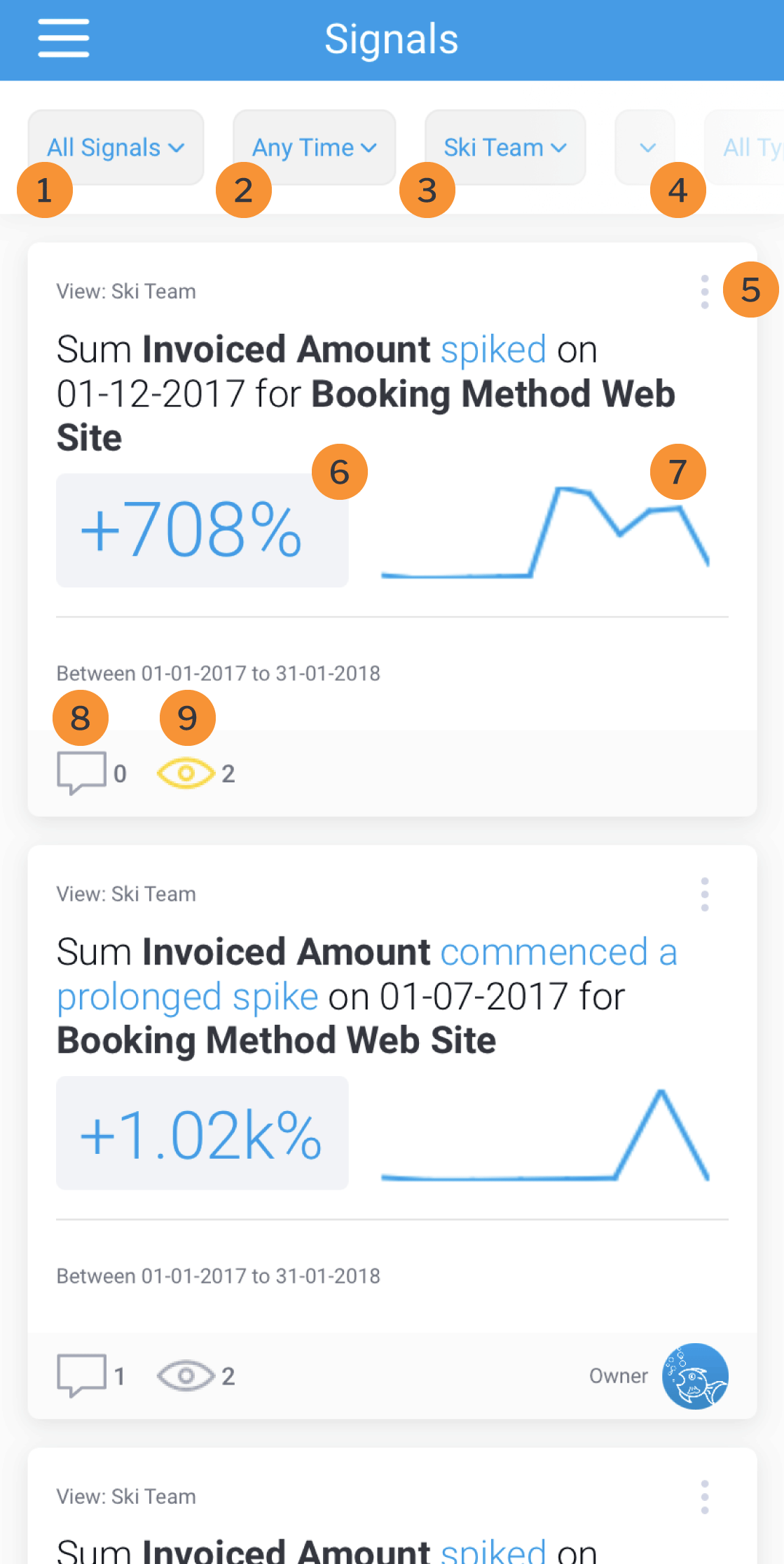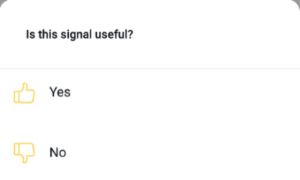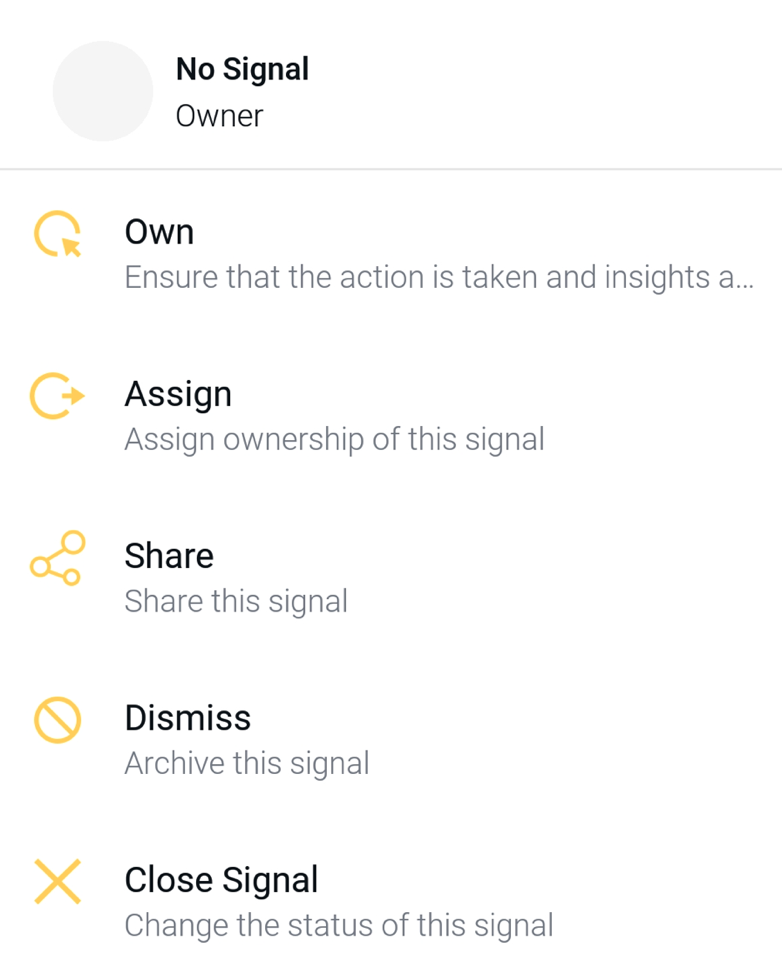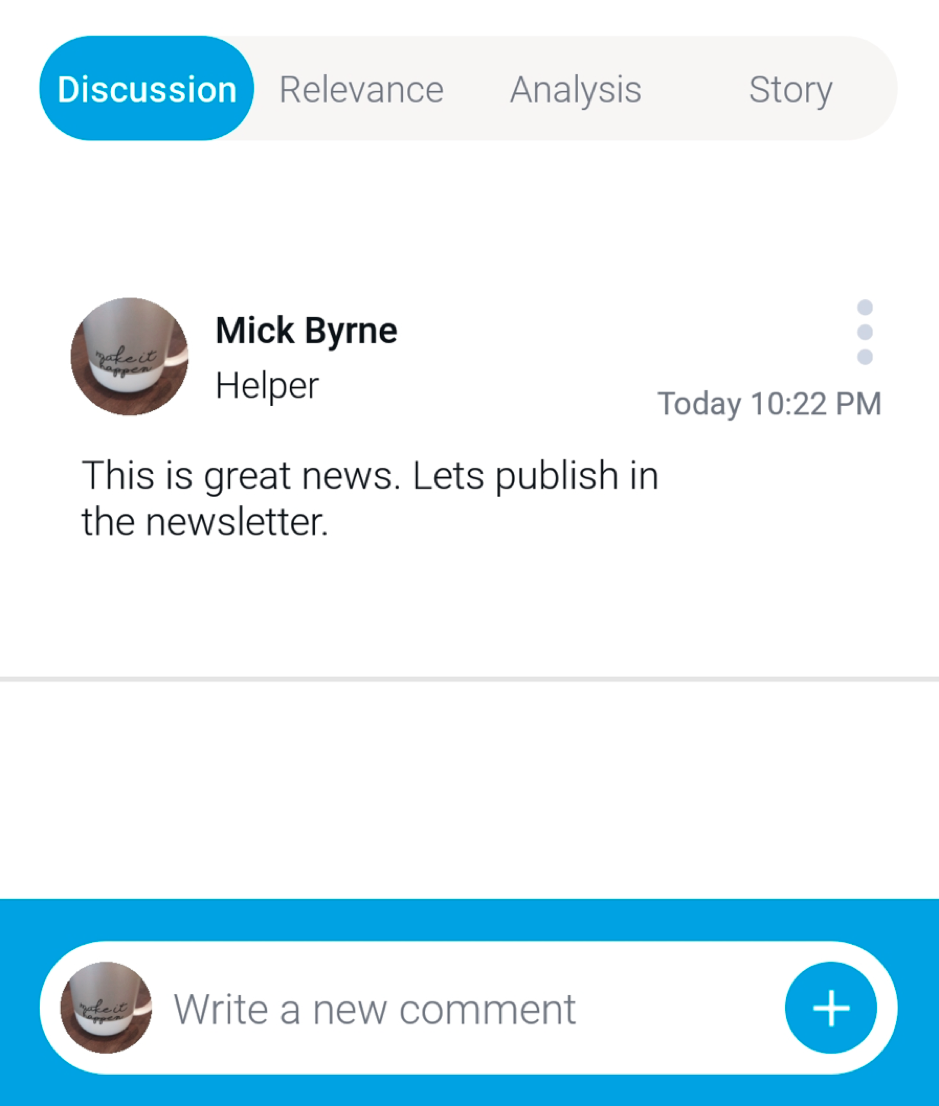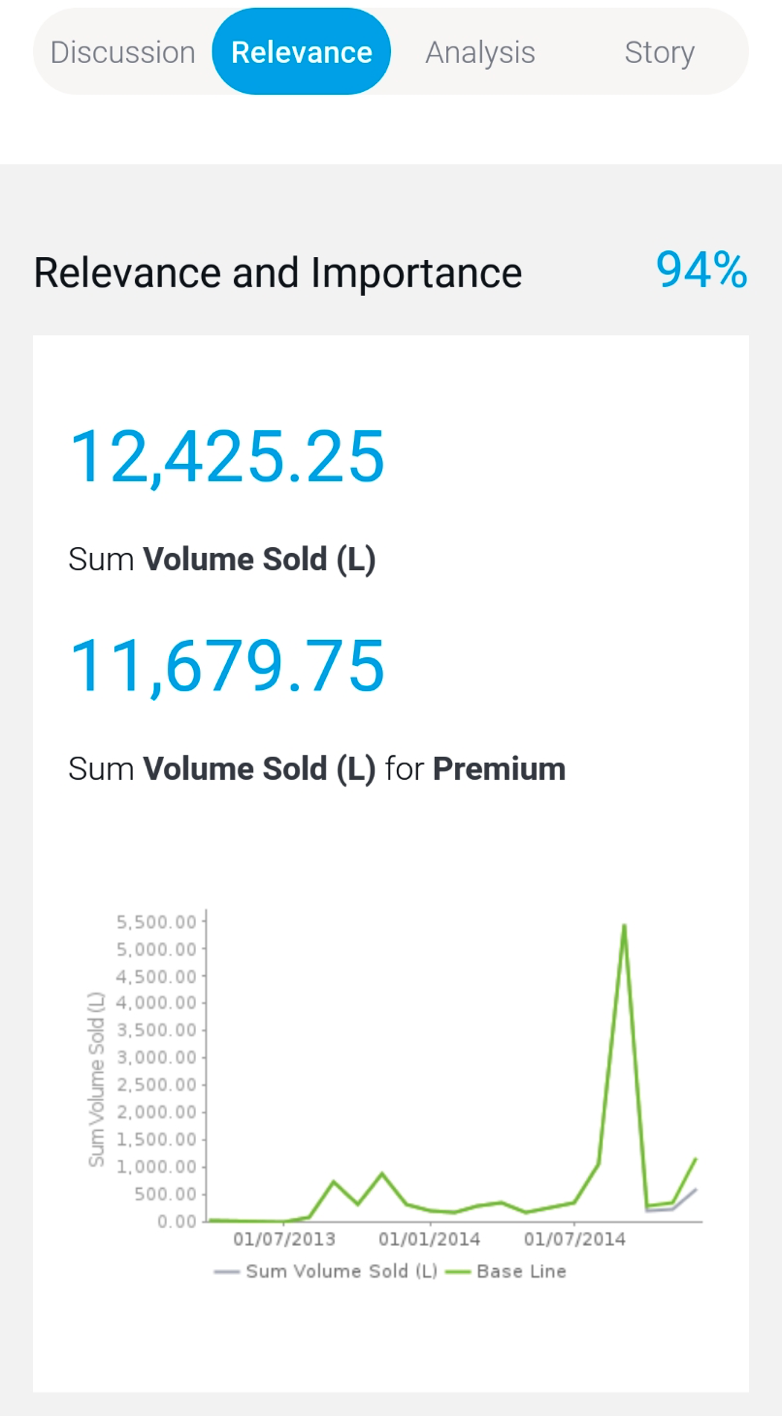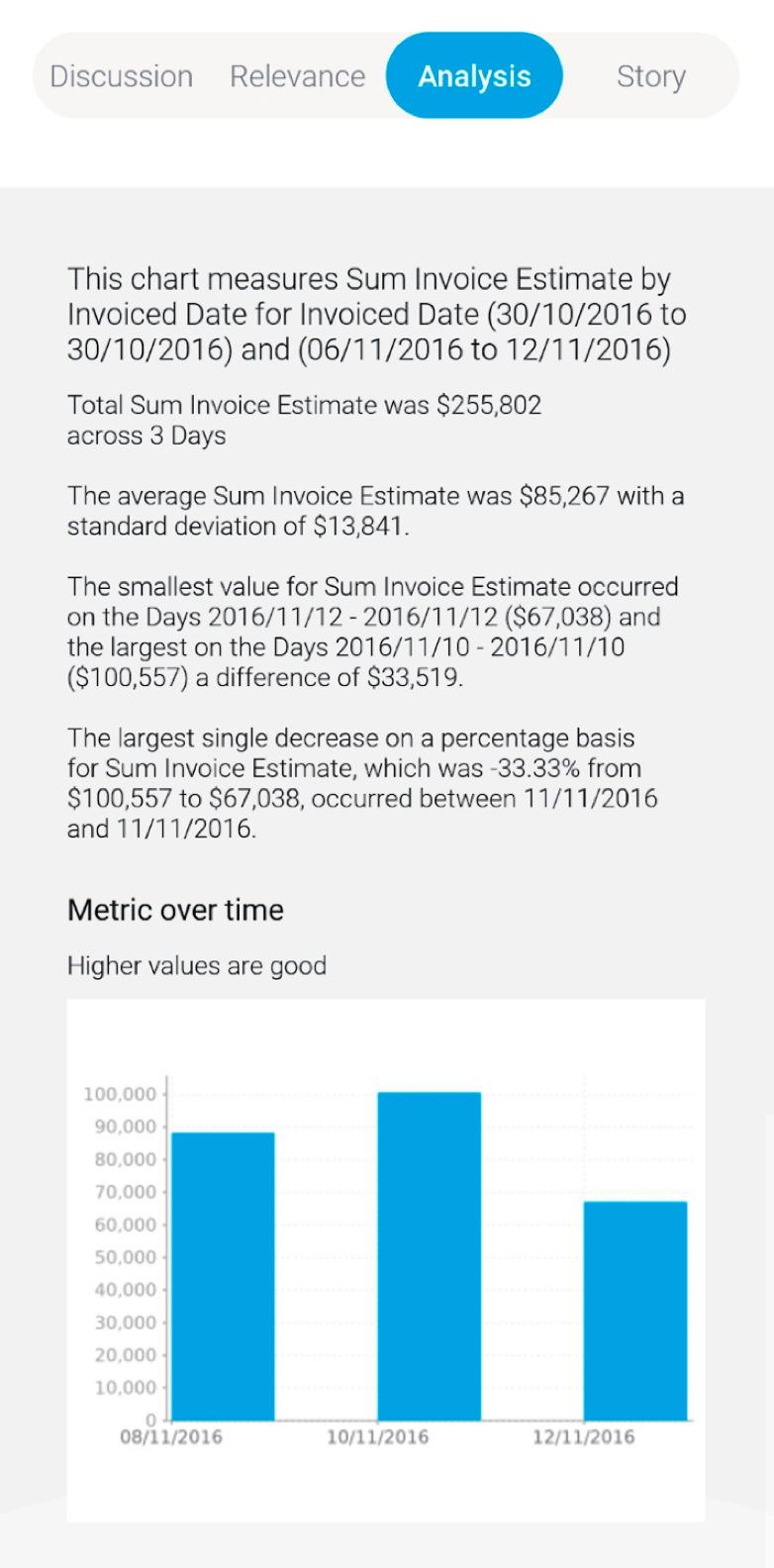Yellowfin Signals allow you to keep track of all the important changes in your data on the go. The app lets you view and interact with Signals generated by the system.
Accessing Signals
Signals are accessed in two ways:
- By tapping on the burger bun in the top-left corner, and then tapping Signals to access the Signals list.
- By tapping on a tile in your Timeline that contains a Signal.
Understanding the Signals list
The Signals list displays all available Signals in the form of tiles, with options for filtering, watching, commenting and performing Signal action items.
Your Signals list will default to My Signals. If you cannot see any Signals, reset the filters.
| Number | Feature | Description |
|---|---|---|
| 1 | Status filter | Tap to display Signals based on their status:
|
| 2 | Time filter | Tap to display Signals by a predefined time range, eg display Signals that were created within the last 7 days, or the last 90 days. |
| 3 | View filter | Tap to display Signals generated from all views, or choose a specific view. |
| 4 | Type filter | Tap to display Signals by type. Swipe horizontally where all the filters are displayed. |
| 5 | Actions menu | Tap the more options button on the top-right of a Signal tile to bring up the Actions menu. |
| 6 | Metric | Tap the metric to view an alternative change value, eg switch between the percentage change to the actual change amount. |
| 7 | Chart thumbnail | Tap the chart thumbnail to open the Signal page. More on that here. |
| 8 | Comments | Tap the speech bubble to display comments posted about a Signal. Tap on it to add a comment. |
| 9 | Watch | The the eye button to display watch the signal. |
Interacting with Signals
You can interact with Signals in many ways, allowing you to explore its analysis in detail. You will see an auto-generated narrative that describes the nature of the Signal, along with a time series chart that shows the history of the specific metric/dimension combination. The main Signal is represented as an annotation in the time series chart.
Understanding the Signal page
The Signal page shows the details of the Signal. All interactive features are accessible from this page.
Number | Feature | Description |
|---|---|---|
1 | Watch | Tap the eye icon to watch a Signal, or again to stop watching it. |
2 | Rate | Tap to rate a Signal as useful or not useful. |
3 | Actions | Tap to perform actions on this Signal. |
4 | View name | Displays the name of the view this Signal was detected in. |
5 | Signal narrative | Displays an auto-generated narrative that describes the nature and magnitude of the Signal, along with the time window in which it occurred. Color foreshadowing is applied to highlight good (as blue) or bad (orange) results. |
| 6 | Time series chart | Displays the Signal time-series chart highlighting the history of the specific metric/dimension combination. |
| 7 | Signal annotation | Displays the Signal annotation on the time series chart. |
| 8 | Expand chart | Tap to expand the time series chart. |
| 9 | Discussion | Tap to display discussion on this Signal. |
| 10 | Relevance | Tap to discover how important this Signal is to you. |
| 11 | Analysis | Tap to discover the underlying reasons for why the Signal occurred. |
| 12 | Story | Tap to display stories written about this Signal, if any have been published. |
Watching a Signal
Click the eye icon to watch or track a Signal. This adds the signal to your watch list (filtered by choosing My Signals), and also sends you Timeline alerts if other users interact with it (by leaving comments or changing ownership). Users will also be able to see which Signals are being watched by whom.
Rating a Signal
You can specify the usefulness of each Signal by tapping on the Useful? option. Yellowfin takes this into account and applies this rating to optimize the delivery of signals in the future. This ensures you receive Signals that are related or similar to the ones you rated as useful, and receive less of those you rated not useful. You can also change the rating after submitting it.
- Tap on Useful? at the top of the screen
The following options will appear on the screen - Tap on Yes to rate this Signal as useful, or No to rate it not useful
Your rating will be saved and taken into account by the system
You can always change the rating by following the same process.
Performing Signal actions
You can perform unique actions on Signals by tapping on Actions in the top-right corner of a Signal page, or via the more options button on a Signals tile. If the Signal has been assigned an owner, you will be able to see their info here as well.
| Action | Description |
|---|---|
| Own | Tap to assign yourself as the person responsible for a Signal. Owning a Signal allows you to take action on the Signal and share insights. |
| Assign | Tap to assign another user as the person responsible for a Signal. |
| Share | Tap to share a Signal with other Yellowfin users, provided the recipients have access to the Signal. |
| Dismiss | Tap to remove the Signal from your list. You can un-dismiss a Signal via the Actions menu by filtering for Dismissed Signals. |
| Close Signal | Tap to remove the Signal inactive from all user Signals lists so no other actions can be performed. You can re-open a Signal via the Actions Menu by filtering for Closed Signals. |
Discussing Signals
Use the Discussion tab to leave comments and collaborate with other users on this Signal.
Signal relevance
The Relevance tab depicts the importance of a Signal (represented in grey) in relation to all other data the user has access to (that is, the baseline data or access filters if applied, represented by green).
Signal analysis
The Analysis tab displays automated analysis through visualizations and natural language narratives, generated by Yellowfin’s Assisted Insights. It is used here to suggest the cause of a Signal, and provide underlying reasons for why it occurred.
